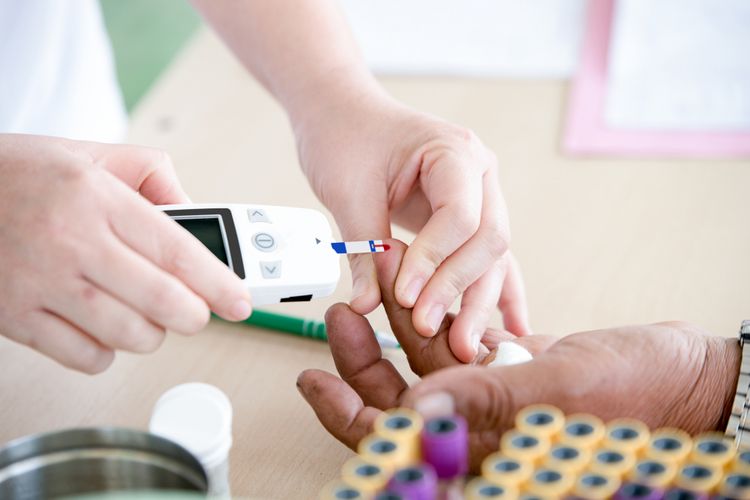Diabetes mellitus (DM) is a chronic disease that occurs when the pancreas does not produce enough insulin as a regulator of blood sugar levels so sugar levels rise and cause serious damage to many body systems, especially nerves and blood vessels. DM is currently a health problem that is often complained of people in the world because the prevalence has increased. According to the International Diabetes Federation(IDF) in 2017, 425 million people were diagnosed with diabetes in the world and are estimated to increase by 48% to 629 million by 2045. While Indonesia is ranked sixth with a total of 10.3 million DM patients and Surabaya is ranked tenth for most patients during 2017 as reported by the Surabaya City Health Office.
Individuals diagnosed with diabetes mellitus (DM) will experience functional changes in the body. It can cause negative emotions such as stress, depression and hopelessness that are not good for his mental health and can worsen the condition of his illness. The negative views of DM patients about themselves and some psychological problems indicate the low subjective well-being. Subjective well-being is a subjective evaluation of a person in the whole life including affective evaluation on positive and negative emotions or feelings as well as cognitive in the form of happiness and satisfaction in life. Personality influences by 50% in the formation subjective well-being. Extraversion personality and neuroticism have been associated with someone’s subjective well-being. Extraversion personality shows high enthusiasm, likes to talk in groups, and shows attention to oneself, whereas personality neuroticism describes the characteristics of someone who tend to have unstable emotion in dealing with stress. Social support from the family and community environment can foster subjective well-being.
In general, factors that influence subjective well-being in a person are well known in a previous study. However, the factors that influence subjective well-being in people with DM in the Surabaya region are still unknown, it depends on the culture, economy and habits of the local community. Efforts are needed to foster a positive assessment on life satisfaction of DM sufferers to create high subjective well-being.
Through a descriptive correlational research method with cross sectional approach to 102 DM patients in the area of Asemrowo, Kedungdoro, Kalikedinding, Klampis Ngasem, Jagir Community Health Centers. Data for personality variables are measured using BFI (Big Five Inventory) questionnaire, family support questionnaire to measure family support and subjective well-being questionnaire to measure the level of subjective well-being. The data analysis used Spearman’s Rho statistical correlation test with significance level
The results of the study found that there is a correlation between personality types and family support with subjective well-being, where extraversion personality and positive family support can increase subjective well-being. Three components in the tripartite subjective well-being model are related to people who are satisfied with life, tend to experience positive emotions, and rarely negative emotions. Individuals with low subjective well-being will feel dissatisfied with their lives and conclude that their lives are not going well. The individual experience a little excitement and more often feel negative emotions such as anger or anxiety so it affects the psychological value and behavior. The average form of support provided by the family is a form of emotional support. Individuals with high family support will be individuals who are more optimistic in dealing with their health problems and more positive in interpreting their life.
The two personality types that are found to be most related to subjective well-being are extraversion and neuroticism. The study showed that most respondents have extraversion personalities with high subjective well-being. The openness of DM patients makes their psychological condition better because of the support and assistance from outside. It can cause a sense of enthusiasm in life and a high level of optimism to recover from his illness. Family support and personality have a one-way relationship with subjective well-being in people with DM in the health center area in Surabaya. High family support and the increasingly positive personality possessed by respondents, followed by increasing value of subjective well-being.
Author: Ika Nur Pratiwi
Link related to the article above: https://www.psychosocial.com/article/PR270910/19287/





